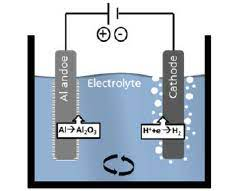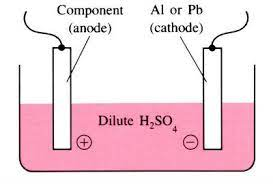Hard anodizing polymer is an effective alloying agent which is applied to stainless steels, aluminium alloys and hot rolled steel to enhance strength and lower the cost of component manufacture. The anodizing process seals the internal components from moisture, thus preventing corrosion. Hard anodizing polymer contains bicarbonate of calcium, which reacts chemically with aluminium in an anodized state to form a hard, durable layer. The protective properties of this composite are similar to other forms of polyacrylate, polyacrylates or calcium carbonate. This material may be used as a coating or additive for a wide variety of metal alloys.
Aluminium alloy construction is made possible with the help of hard anodised polymer. Hard anodised polymer coatings for stainless steel, magnesium alloys and cold rolled aluminium are frequently used to enhance strength, stiffness, durability and production efficiency. With the development of composite steels in the world market, the popularity of hard anodised polymer has increased tremendously. These coatings have immense advantages over similar metals; they are more resistant to fatigue, corrosive attack and impact and they also resist corrosion. In addition to this, they provide good resistance to high temperatures, which makes them ideal for aerospace applications. Its one of the many functions that Poeton does.
The strength, stiffness and durability of the alloy depend upon the thickness of the applied coating. The added property of low friction gives them the ability to form much finer layers and this feature increases both the thickness and the tensile strength of the product. Low friction means less energy is needed to move the object; hence, a hard anodised polymer product is more durable. Because of the additional property of low friction, it is possible to achieve high hardness levels, which ensures optimal performance of any component that is a potential candidate for hard anodising.


